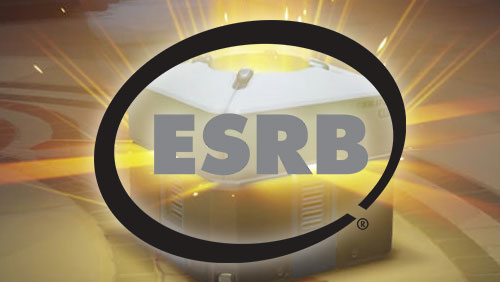The clamor to classify video game “lootboxes” as gambling continues to grow especially in the wake of the controversy hounding the latest video game Overwatch.
 Slovenian video gamer Lovro Pirjevec has started a petition on Change.org in October urging U.S’ independent rating agency Entertainment Software Rating Board (ESRB) to once and for all consider loot boxes as gambling.
Slovenian video gamer Lovro Pirjevec has started a petition on Change.org in October urging U.S’ independent rating agency Entertainment Software Rating Board (ESRB) to once and for all consider loot boxes as gambling.
In a span of one-month, the petition has already garnered 45,724 from gamers who share his views that “lootbox” fit the definition of gambling.
“As per Google’s definition of a gamble: take risky action in the hope of a desired result. And Dictionary.com: to stake or risk money, or anything of value, on the outcome of something involving chance,” Pirjevec said in his online petition. “Lootboxes and crates in video games fit the description entirely, as everytime you open them, you gamble and take chances to win rare in-game content.”
ESRB, being the sole independent agency tasked to assign ratings to video game contents, is expected to be the first one to scrutinize and decide whether or not “lootboxes” in video games should be treated as a form of gambling.
The independent body has already stated in October that it “does not consider loot boxes as gambling” despite the element of chance in these mechanics.
Unlike in gambling, ESRB explained that video gamers are always guaranteed to receive in-game content – even if the player unfortunately receives something they don’t want.
Pirjevec, however, disagrees with ESRB’s observation that “lootboxes” isn’t gambling because players are being compensated. He has likened the mechanism of “lootboxes” to that of playing slot machines of which players are compensated by credit or a dollar when they lose the bet.
The only solution that he sees, according to Pirjevec, is for ESRB “to declare their respective “Adult only” rating for video games in which you can gamble or video games which compensates players with digital items and credit cards.
“I don’t think that this is correct as video games employ all real-world tactics that are used to make people gamble without mentioning exploitation of addictive behavior and adverse effects it can have on people, especially on minors who are not familiar with those methods,” he said. “Just because you get a small compensation, in the end, it doesn’t mean that this is not real gambling.”
The issue of “lootboxes” gambling came to the limelight when Warner Bros. announced the debut of an online market through which Shadow of War players could purchase Loot Chests outside the games, thereby offering players a shortcut to making progress in the game, provided one was willing to spend the money.
This has led some observers to make unflattering comparisons to the ‘skin betting’ scandal that recently garnered waves of bad publicity in the eSports community.
Just this week, state regulator Belgian Gaming Commission (BGC), are already debating whether to classify Battlefront as a gambling product.